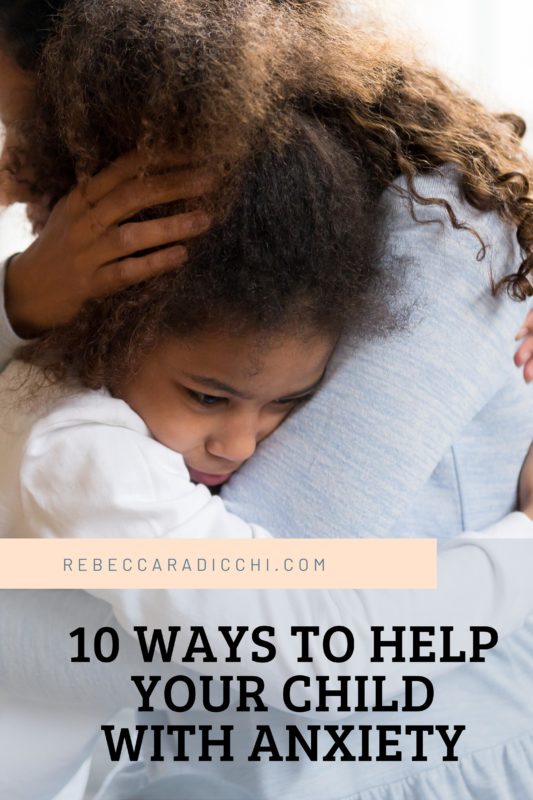
The desire to protect our kids is in our hardwiring. From the moment we become a parent, our senses go on high alert, ready to pounce on looming trouble. But no matter how hard we try, there are troubles from which we can’t shield our kids. Sicknesses, disappointments, and debilitating emotional and mental tendencies come even to bubble-wrapped kids with parents hovering above in helicopters.
Parents of anxious children know this is true.
Anxiety can:
- Change a child’s behavior
- Steal their peace
- Bring chaos to a home, and
- Impede learning
And though it’s increasingly common in kids and teens, the desire to protect our child’s privacy compounds anxiety’s impact. Whether your child has been clinically diagnosed with anxiety or suffers to a lesser degree, take heart, because hopeful progress can be made.
These ten suggestions aren’t a cure for anxiety, but they might move your family toward healing.
1. Intentionally Pray
We sometimes say, “I don’t know what to do except pray.” Well, yes. Activate your most powerful weapon and pray your guts out.
- Teach your child to pray over things that worry them.
- Find verses to pray that speak to peace and against their fears.
- List answered prayers in a journal to look back on and remember God’s faithfulness.
God can indeed heal your child of their anxiety, so pray along those lines, but he also sometimes allows us to walk through hard things, including anxiety. Spend some time listening for His voice. What might he be saying to your family as you battle anxiety?
That said, do be sensitive to the pressure kids might face to “pray away” their anxiety. For some, when they pray, yet their anxiety remains, they feel shamed or forgotten.
2. Don’t Try to Avoid Anxiety Triggers (It Only Validates Their Worries)
When we sense danger for our kids, we naturally swoop in as momma and poppa bear. If we could, we’d hold them protectively away from all the harm and hurts of the world.
Without realizing it though, we’ve saved them in the moment but added more fuel to the anxiety. Avoiding their triggers sends a message that those were valid worries after all, worthy of avoidance.
Averting anxiety doesn’t make it go away. Rather, it shoves it downhill like a building snowball.
Social anxiety might begin to take away a child’s willingness to go to school. But if we accommodate by allowing them to stay home, we reinforce that there are people we should avoid or hide from. A message is sent that school is to be avoided and facing what’s hard is a reckless choice.
When we make accommodations for our child’s anxiety, it takes up more ground in their minds.
Read the rest of my suggestions at iBelieve.
Learning credit: The Rogers Institute
Photo credit: Dustin Belt, Unsplash
Love this! Needed! Thank you!